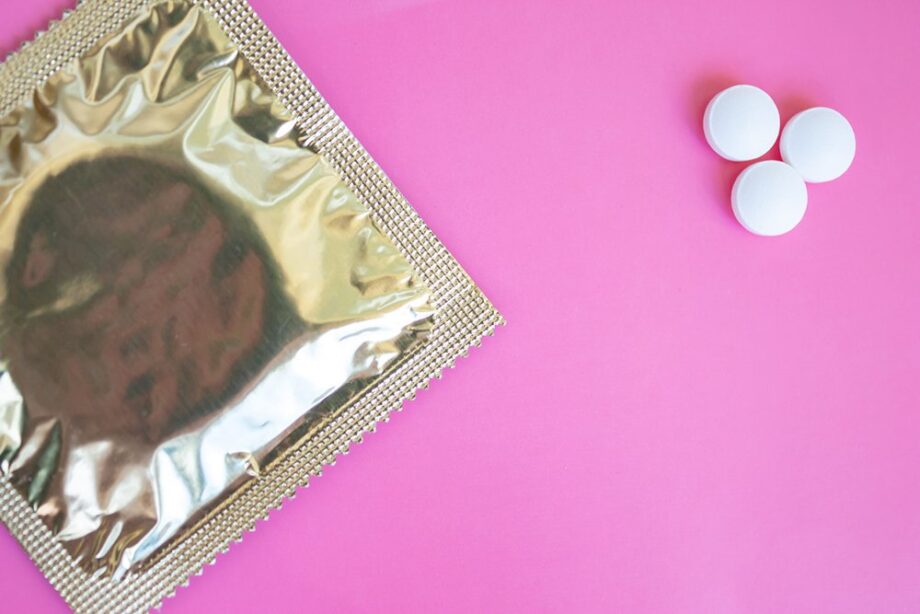STIs are on the rise. A recent report by the Centers for Disease Controls and Prevention (CDC) estimates that up to 20 million new sexually transmitted infections (STIs) occur each year in the U.S. There’s been a 76% increase in the number of diagnosed syphilis cases, in addition to a 67% uptick in gonorrhea diagnoses and a 22% jump in cases of chlamydia.
These are only the documented cases!
It’s unfathomable how many STIs are left unreported (and unfortunately, undiagnosed). Even then, not all diagnoses are required to be reported to the Centers for Disease Control and Prevention (CDC), including herpes and HPV/genital warts.
Because so many STIs are asymptomatic, it's essential to get tested regularly. There are several quick and easy STI kits you can do at home. Most of these tests take only a few minutes and require saliva, urine, a swab, or a prick of blood (depending on what you're testing for).
Read: So, You're Having an STI Scare? Here's What to Do
Some brands allow you to check for individual STIs, or you can opt for a combo panel, which tests for multiple STIs. Individual tests tend to start around $70; panels start at $150. Typically, results take just a few days (on par with about how long Planned Parenthood takes), and users are notified via email to access a username and password patient portal.
We spoke with six people who’ve used at-home testing. Here’s what they had to say about it:
Lela, 28
I’m an adult. I have sex. STI testing shouldn’t be a big deal, but I have so many hang-ups around it. I know I need to do it, but when it comes down to actually doing it, I'm embarrassed.
I grew up with so much shame around sex, and testing is like telling the world I'm having sex. I know, it's completely irrational. I got tested once at my doctor’s office, but all of her questions about my sexual history made me very anxious, so I didn't do it again. At-home testing works for me because no one needs to know, and the process is private.
Monika, 42
I’m a sex worker. Due to the nature of my work, I need to be tested regularly and fitting in an appointment at a clinic isn’t always conducive with my schedule. At-home testing fills in the gaps between these appointments and helps keep me safe and healthy. I wish sex work was decriminalized, so it could be regulated and provide necessary safety services, testing, and treatment. Someday, maybe.
Read: How When and Why to Disclose Your STI Status
Frank, 32
I’m gay and live in a small town. I use at-home testing because I’ve been judged in the past when I’ve sought testing. I don’t care if people agree with my lifestyle, but I don’t need my medical practitioner to eye-roll me for getting routine testing. I’m doing my best to practice safe sex. Isn’t that the end goal?
Jaysen, 33
I like at-home STI testing because it’s so convenient. I can go online, order a test (or test), and it’s in my mailbox within a few days. The actual process is easy too. I open the package, register the kit online, then follow the instructions in the box.
Depending upon what I’m testing for, it’s as easy as swirling a cotton swab inside my mouth. Sometimes I need to prick my finger for a blood sample. Either way, it takes a few minutes literally from opening the box to packing up the mini vials in a returnable envelope. I can walk it down to my mailbox and have results back in a few days. You can't ask for easier STI testing than that!
Jenna, 23
I’m 23 and still on my parent’s insurance. I am sexually active and like to get tested every six months, but know that my parents would freak out if they got a bill or any kind of documentation in the mail. I work two jobs and my hours are all over the place.
There isn’t a Planned Parenthood near where I live, so it’s been easier for me to pay for at-home testing than worry about my parents getting mad at me. Which if you think about it, is so dumb, because all I’m trying to do is take care of my health. I would never go to my regular doctor’s office. I don’t trust them not to tell my parents. I live in a small town, and everyone knows everyone's business, and I'm pretty sure people at my job already think I'm a slut.
David, 40
I run my own start-up and have no time in my workday to make an appointment to get tested. At-home testing (or in-office, in my case) has been a great option that I can do on my own time. The only downside I’ve had with at-home testing was with a chlamydia scare I had last summer.
Not the end of the world, but my diagnosis was disclosed through a medical chart instead of a medical practitioner. I still had to make a follow-up appointment for treatment, and to be honest, the impersonal nature of the diagnosis felt a little weird. I guess that’s the trade-off you get when you want on-demand convenience and don’t book an appointment with a real live human being. Anyway, overall, it’s made my life a whole lot easier.
The Bottom Line
If you're having sex, you should get tested. And if you're having casual sex, it's a good idea to get tested for STIs every three to six months.
Many people contract STIs, and at-home tests are a convenient way to know your status and help decrease the spread of infection. Early diagnosis is often the key to successful treatment, Plus, knowing your STI status is sexy!
Get 20% Off Sexual Health Tests Today
Want to learn more? Here are some great resources:




